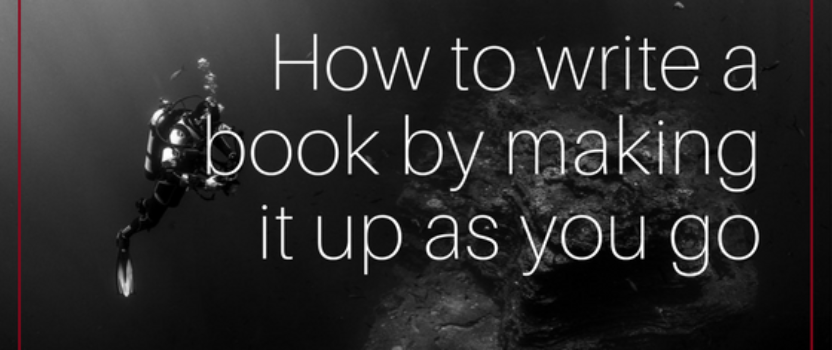How to write a book by making it up as you go
While some non-fiction authors may consider it offensive to ‘make it up as you go’, the reality is in many professions, advice that is given is an ‘educated guess’– in other words, they are making it up as they go.
One of the most important factors for writing a book is understanding why you are writing a book in the first place.
It seems that Simon Sinek’s book, Start with Why, has become a catchphrase of the current times.
In reality, looking inside your self, has been a philosophy of thinkers for generations.
Sinek’s book however, has provided a new age format that allows people to revive this technique in a new way. (Again reinforcing the importance of writing your book in your way to resonate with a new audience and to create new understandings)
Steven Covey also spoke about looking inwards, before focusing outwards, in his book The Seven Habits of Highly Effective People. And of course we could always have a look at the fables of Aesop for enlightenment.
Having the right mindset will enable you to write a book. Find your Why and all else will follow.
Consider this, think of other projects in your life that you have completed, even though it was stressful, and potentially painful at the time; however, once you put your mind to it (because you understood Why you wanted it done and Why it was important to you.) you completed it.
Similarly, with writing a book, you need to consider Why you are doing this.
Some reasons people have noted that they write a book are as follows:
- to share the truth;
- to provide a legacy;
- to share their knowledge;
- to raise awareness;
- to share their research.
The above points are particularly related to non-fiction business focused publications.
While I am fascinated with fiction (in particular, science fiction), my understanding of why those authors write and how to put that particular genre together is certainly not something I will make up as I go along.
This is also an important point. Know when you can’t make it up as you go along and move back to where you are an expert.
Any thoughts that flow freely for you are most likely to be in your area of expertise and what you should be writing about.
What ideas and thoughts flow freely for you? How do you use these on a daily basis in your business? How can these ideas and thoughts help others?
While reading this article, what ideas come into your head, jot them down and start thinking about how you can expand these.
If you are still unsure, please send me an email at dyan@dyanburgess.com, in the interim, happy writing.








